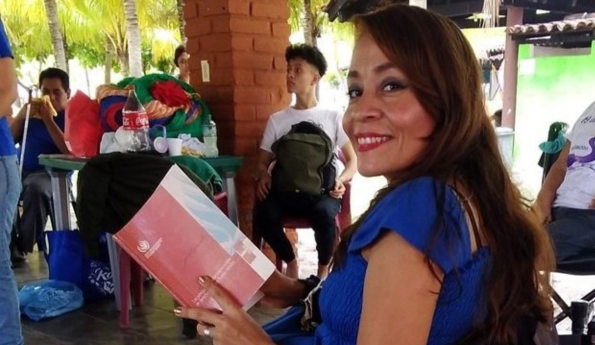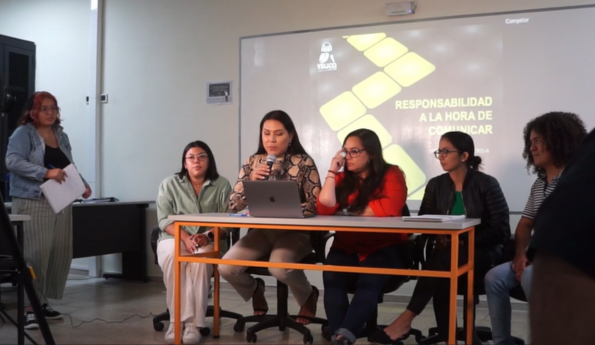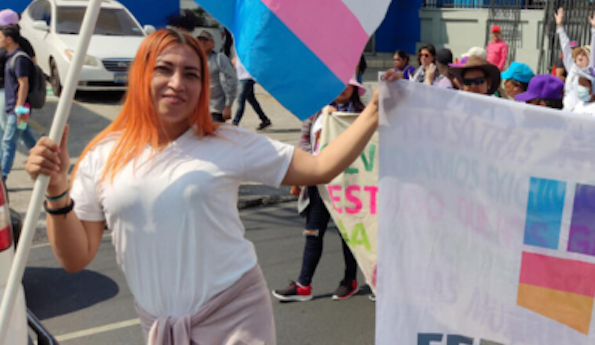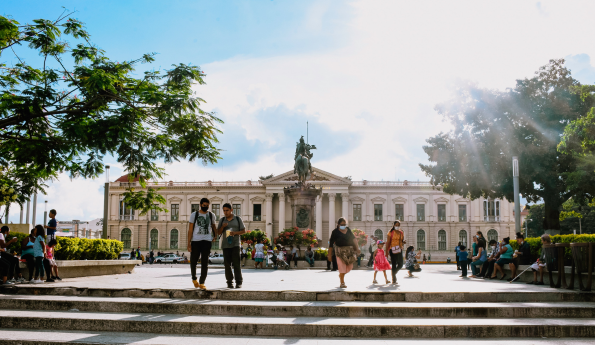Flor de Luz Acosta always wanted to know more. Adopted by an American family at a young age, she was always aware of her home country, El Salvador. Her new English last name contrasted with her Salvadoran features, different from those physical traits of the people around her. In her own words, “It was difficult, because I grew up not knowing who I was supposed to be, I felt a little lost.”
Through a professor at the University of Berkeley, she learned about the work of Asociación Pro-Búsqueda, a Salvadoran organization supported by Counterpart’s Rights and Dignity Project, funded by USAID. Pro Búsqueda’s work is focused on investigating cases of disappearance and forced separation of children during the civil conflict in El Salvador in the 1980s. Counterpart supports the organization through grants and training to strengthen their organizational capacities. Our funding allowed Pro Búsqueda to access databases to improve their investigation and monitoring capabilities for cases of missing children.

Flor de Luz Acosta, accompanied by staff from Asociación Pro-Búsqueda, embarks on the journey towards reunification with her biological family. Credits: Asociación Pro-Búsqueda.
In January 2013, Flor de Luz Acosta decided to send the email that would begin her journey back home.
After the death of her father in 1980, her mother, Elena Acosta, left for San Salvador with her children due to the increasingly frequent armed conflict in their community. The three children were taken to a foster home that was intended to be temporary. Without her mother’s consent, Flor de Luz Acosta was given up for adoption and taken out of the country in 1982.
Her three siblings Marlon, Alejandro, and Flor de María Acosta, who was named in memory of her, grew up hearing about their long-lost sister and their mother’s desire to see her again, with only memories and photographs of the sister they hoped to find someday. “I already loved her, since adolescence, I already loved her, even though we were lost from each other,” Marlon Acosta said.
It was through the efforts made by Pro-Búsqueda to obtain Flor de Luz Acosta’s legal documents that her siblings discovered their sister was also searching for them. Although they had made some attempts in the past to locate her, it had always ended with the advice to give up searching. This time, however, they knew it was different. Alejandro Acosta felt what he describes as “a great positive energy. I was trembling all the way to my throat. I had no doubt that it was her, I knew it was her.”
Once the organization contacted all the Acosta siblings, the moment arrived to conduct the DNA test, which would confirm what the siblings felt in their hearts. “Joy has overflowed us ever since,” Marlon Acosta recalls. Not even the barrier of the English language prevented the first video call between siblings from lasting nearly two hours.
“I always wanted to know who I am, where I come from, my ancestry. My last name will always be Acosta, I am proud to be Salvadoran. Being in El Salvador changed everything for me. I am no longer sad, the dark cloud has dissipated.” – Flor de Luz Acosta
Flor de Luz Acosta could no longer wait to see her siblings, so she decided to travel to El Salvador in March 2024. All the doubts and the confusion of a new country dissipated within the first embrace the siblings shared. Now Flor de Luz Acosta is not only reclaiming lost time–she finally understands where she comes from. Her uncles and siblings constantly tell her that she is the spitting image of their now deceased mother. “I eventually want to recover all my memories,” she said.
The support from Pro-Búsqueda will also aid in locating Miguel Acosta, another sibling separated during the conflict. “Pro-Búsqueda has provided us with this land to plant our roots as a family and grow tall and strong,” Flor de María Acosta said.
Positive experiences like those of the Acosta family reaffirm the steadfast commitment of the Rights and Dignity Project. We will continue to strategically support civil society organizations on the path towards a Salvadoran society that honors the rights to identity and truth for every citizen.
“Each reunion is a family reclaiming a girl or boy who was taken from them, but it also means the hope and faith that other cases can continue to be resolved,” said Ana Julia Escalante of Asociación Pro-Búsqueda.






